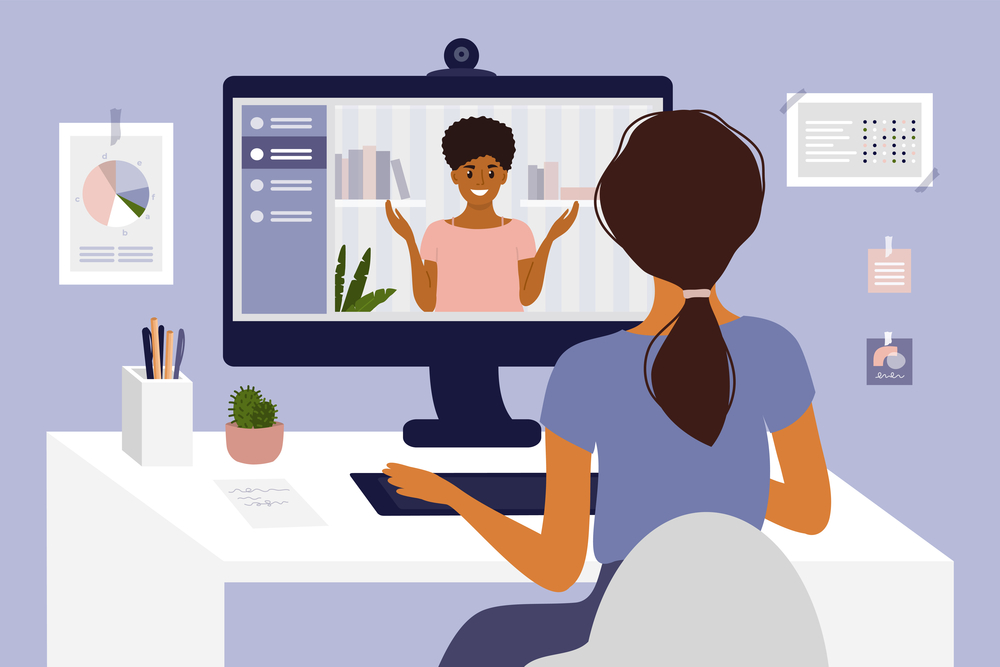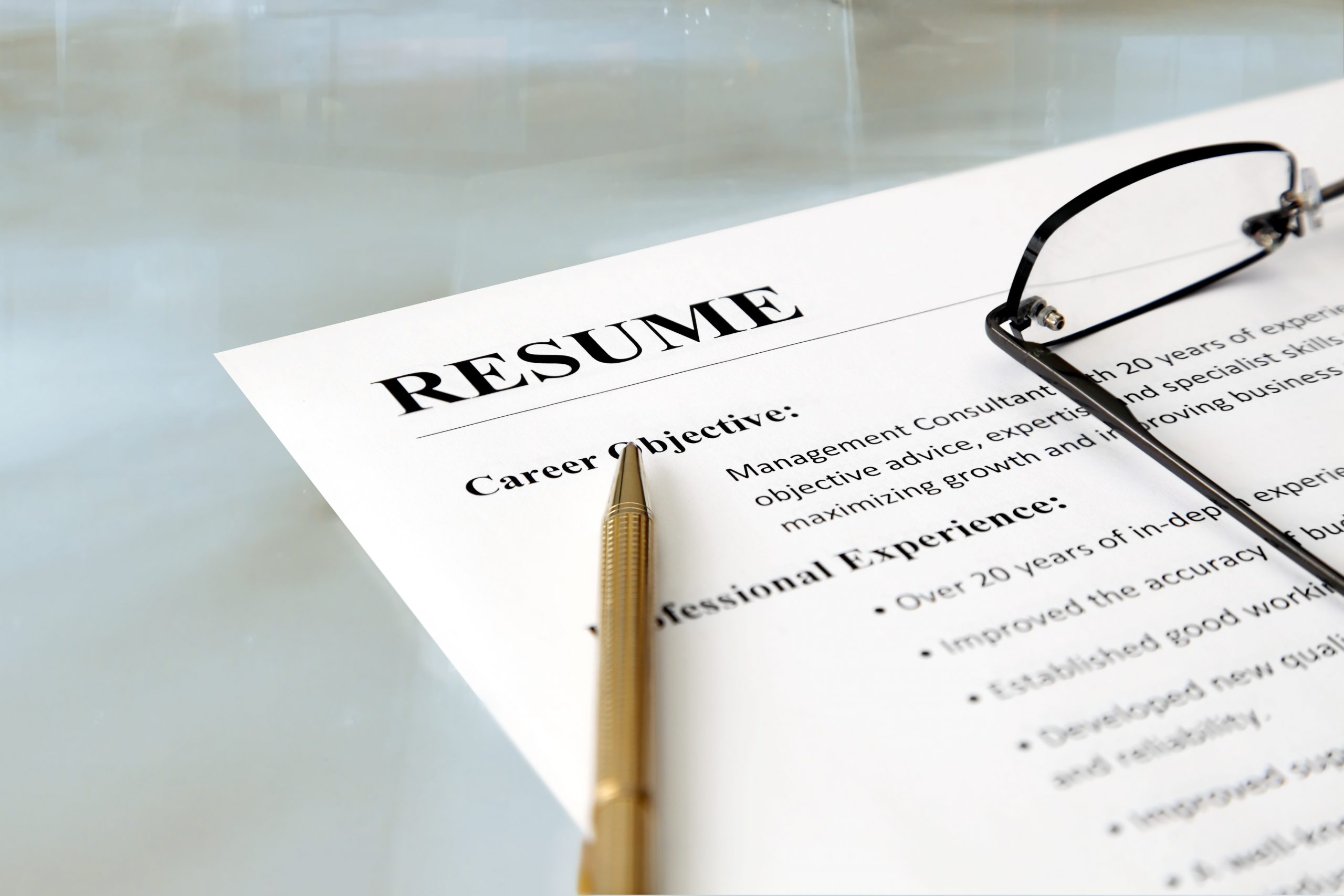Interviews often seem daunting and intimidating. Your fate is basically in someone else’s hands, right? Not necessarily. There’s a lot that you control in an interview that you may not be aware of. As many companies transitioned to virtual job interviews, there’s an even greater need to sell yourself because you don’t have the in-person opportunities for banter or casual conversation that you might be accustomed to. And while talking with someone for thirty minutes doesn’t show your interviewer the entirety of who you are, you can control what you reveal and how compelling it is. Here are some tips on how to sell yourself in an interview, virtual or otherwise.
Do Your Research
Every company is different. They all have different priorities and goals, so always look into the background of the organization you’re applying to, even if it’s in a field you’re familiar with. Research the company, your interviewer, and if you can, the person that was previously in the role. Comb through the company’s website, read their blog, and find out how and why they got started. LinkedIn is great for checking out a company’s current and former employees, and their backgrounds and interests.
Practice Makes Perfect
No matter how many interviews you’ve done, you should still practice before each one. You don’t want to sound like you’re reading from a script, but you want everything you say to flow nicely and feel as natural as possible. You also want to make sure you’re succinct while still being informative, so that you cover all the important points on your resume.
If you will be interviewed over Zoom or through another virtual platform, set up a practice session and record yourself, so that you are aware of how you come across through the camera. This can show you how best to maintain “eye contact” through the screen, alert you to how your posture appears, and reveal any background clutter that you may not want a potential employer to see.
Make a list of the things you definitely want to include in your spiel, and tweak as you practice to make it as compelling and relevant as possible. Practicing will allow you to confidently speak about yourself and your achievements, and will make you feel a lot more prepared on the day.
Common Questions to Look Out For
Here are some of the most commonly asked interview questions, and how to prepare for each of them. And if you’re looking for answers to some of the tough questions that might come up, check out this blog.
Tell me about yourself.
Your answer to this instruction should be a summary of your background as it relates to the role you’re applying for. You can start with your current role and work your way back, or vice versa. Try to keep it concise while still providing the important details, such as particular experiences that connect to the position for which you’re interviewing.
What are your top three strengths and weaknesses?
Many people answer this question by giving six strengths and disguising three as weaknesses. But your recruiter will see through that instantly. Be honest, and think of your weaknesses as growth opportunities. What would your current or former employer identify as the areas where you could improve?
Elaborate on each answer with a brief description or an example of how they apply to you. For strengths, this tells your recruiter that you’ve got the necessary soft skills to do the job well. For weaknesses, you have the chance to talk about the improvements you’re making. Here’s a few to get you started.
Strengths
- Flexible
- Versatile
- Disciplined
- Punctual
- Courageous
- Dedicated
- Keen to learn
- Enthusiastic
- Creative
Weaknesses
- Self-criticism
- Public speaking
- Avoiding conflict
- Delegating tasks
- Taking too many risks
- Being too honest
- Internalizing issues
- Being too sensitive
- Procrastination.
Where do you see yourself in five years?
While your answer doesn’t have to be too specific, you should have a general idea of what your five-year goals are, and they should relate to the position you’re applying for. You should demonstrate your desire to grow your career with the company and in your field.
Why do you want this job?
This is really two questions in one. Your answer should give specifics about the role that you’re excited about, but also cover why you want to work for this particular company over any other. This requires doing some background research on the organization, to identify what sets it apart from others. You don’t have to think they’re going to change the world in order to want to work for them, but do identify the advantages of their product or service, and expand on why that’s compelling to you.
Use Examples
It’s easy enough to say you’re a good salesperson or a great writer, but your recruiter is looking for you to back it up with facts. Talk about tough sales you’ve closed or where you’ve been published. Mention any accolades you’ve received in your field, and use metrics whenever possible.
You can also share what others have said about you and your performance. If you’ve been recognized by your manager or someone in leadership for being particularly great at something, say so. These concrete instances will help solidify the recruiter’s impression that you’re an expert.
Remember: You’re Interviewing Them, Too
Of course, you want your interviewer to like you, but keep in mind that you’re vetting them just as much as they are you. You need to make sure this position will be a good fit, so ask questions about the most important aspects of the company and the role. Ask about the organization’s culture, and how the team members interact with one another. Find out what your boss’s management style is, and ask what they are most proud of, whether it’s the company or their work. These questions will give you some direct insight into why they continue to work there and can expose areas that you may differ on.
Planning for an interview makes the process much easier, and you’ll appear much more confident. And hopefully, your next interview will go so well that you’ll not have to interview anymore!




